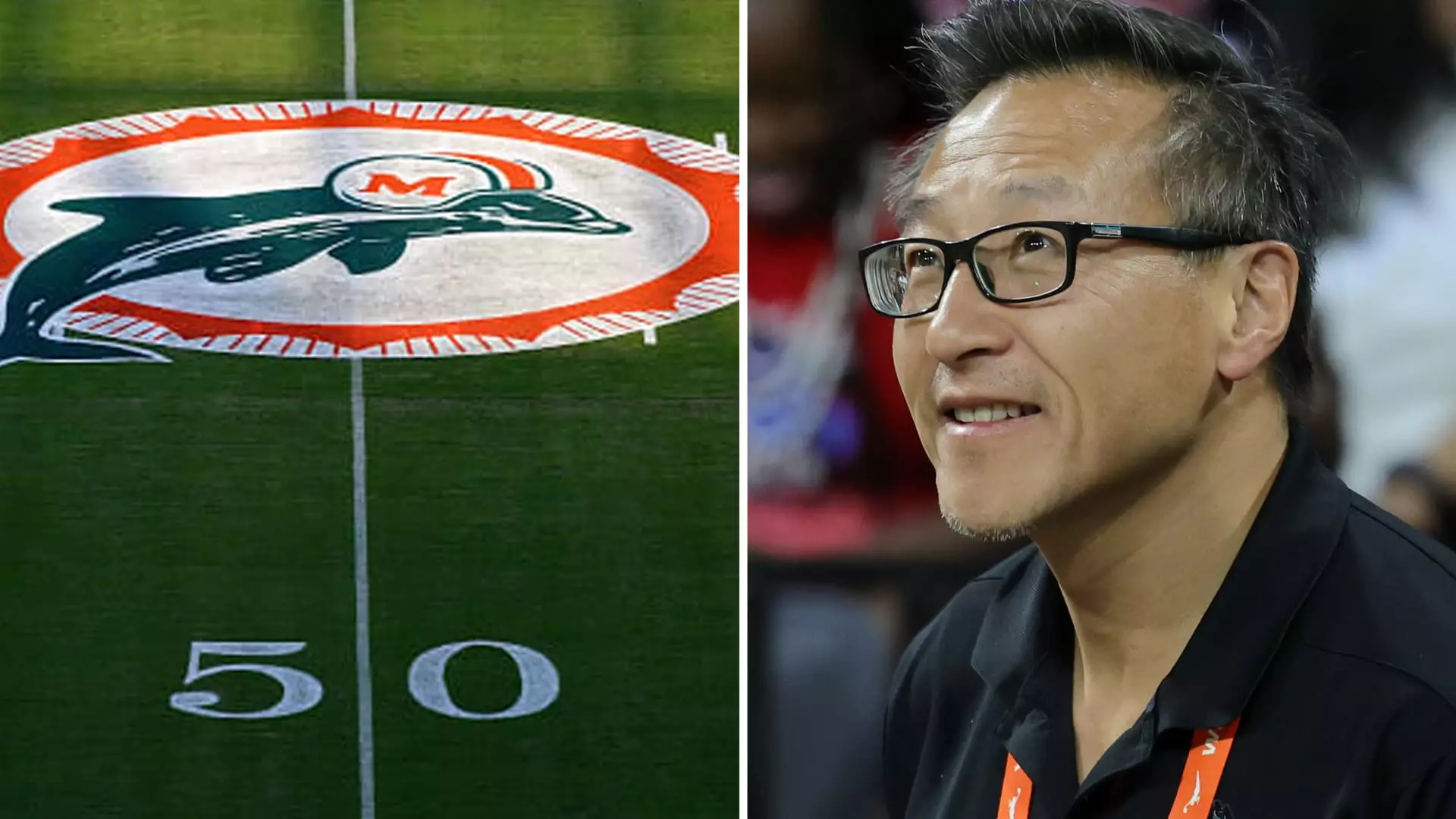Investment Dynamics in Professional Sports: A Case Study of the Miami Dolphins

The landscape of professional sports is transforming rapidly, influenced by high-profile investments and the pursuit of maximizing revenue streams. One notable illustration of this trend is the Miami Dolphins, who are currently in advanced discussions with private equity firm Ares Management and billionaire Joe Tsai for a minority stake in the team. This initiative not only reflects the increasing interest in multi-team ownership but also accentuates the strategic maneuverings of sports owners in the current economic climate. This article explores the implications of this potential deal and the evolving dynamics within the NFL and beyond.
Negotiations surrounding the sale of a minority stake in the Miami Dolphins, spotlighting an overall valuation of approximately $8.1 billion, underscore the sheer financial gravity within professional sports. This valuation encompasses not only the franchise itself but crucial assets like Hard Rock Stadium, which serves as a revenue-generating hub with events such as the Miami Grand Prix and the Miami Open. By investing in these venues, team owners can optimize their revenue models, tapping into diverse income streams that are inherently linked to their franchises.
Interestingly, the Dolphins are valued at an estimated $7.1 billion, making them the eighth most valuable NFL team, as per sources. This figure emphasizes the importance of franchise valuation amid evolving market conditions, contrasting significantly with the projected controlling valuation of over $10 billion for the same assets. Such discrepancies highlight the valuation methodologies employed in professional sports and the varying perceptions of value among potential investors.
The anticipated agreement marks a pivotal moment for the NFL, signifying the league’s first engagement with private equity investment since the adoption of new financing rules in August. This move is particularly significant, as the NFL has historically resisted such investment models. By softening its stance, the league opens the door for select private equity firms, like Ares Management—already managing a colossal $450 billion in assets—to invest in teams, signaling a shift in strategy amid rising franchise valuations and the complexities of finding suitable buyers.
This investment model not only provides liquidity for team owners but fosters a collective growth mindset within the NFL. It could potentially reshape ownership structures, create competition among teams for optimal financial practices, and cultivate a broader investment landscape within professional sports—paving the way for increased collaboration between traditional sports ownership and existing financial institutions.
Stephen Ross, the current owner of the Miami Dolphins, illustrates the scenario of visionary ownership. Having acquired the team in 2009 for $1.1 billion, Ross aspires to harness the proceeds from this minority stake sale to expand his South Florida real estate portfolio and reinforce his investments in sports. His ownership strategy aligns seamlessly with revenue-generating initiatives from sports events at Hard Rock Stadium, where additional opportunities such as the Miami Grand Prix amplify financial returns.
Ross’s reluctance to part ways with majority control—evident when he recently turned down a staggering $10 billion bid for complete control—shows his commitment to maintaining family ownership and legacy. Such sentiments underline the emotional and historical stakes involved in sports ownership, beyond mere financial considerations.
The potential acquisition of a minority stake by Joe Tsai, who is already deepening his roots in sports ownership with control over the Brooklyn Nets, New York Liberty, and various lacrosse teams, signifies a strategic expansion of his burgeoning sports empire. Tsai’s investments illustrate a broader trend wherein owners seek diversification, building portfolios that encompass multiple franchises across different sports. This approach not only strengthens their financial foothold but enhances their influence in the sports industry.
The evolving landscape of sports ownership, characterized by high-stakes negotiations and the increasing allure of diversified portfolios, reflects not just a financial transaction, but a metamorphosis in how professional sports franchises operate and interact within their respective ecosystems. As the Miami Dolphins’ negotiations unfold, they serve as a barometer of the changing dynamics within the sport, spotlighting the intersection of finance, ownership, and sport in an increasingly competitive environment.





